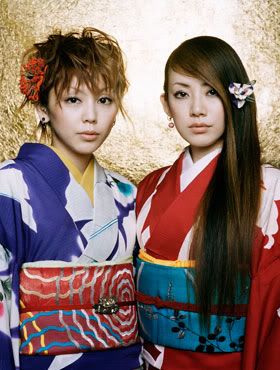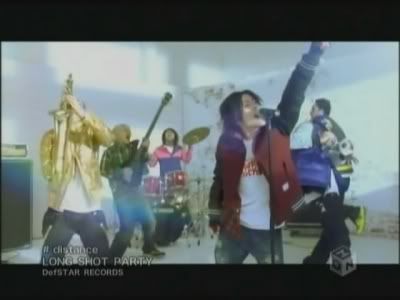
By MARC LIU
New sounds fill the air during a typical walk down the main streets of Shanghai, Beijing or Xi’an. These noises, however, are not the banging of gongs, the strumming of an erhu or the sizzling of a wok. Instead, the beats of a teenage boy crooning about love while playing his drums stream over the radio. From the grand opening of a department store to a discount sale at a trendy clothing boutique to the local DVD-CD shop, Chinese pop music surrounds everyone, seemingly everywhere in large cities.
Even when entering a bustling KFC restaurant (a popular hang-out for hip teenagers), a catchy melody with a hint of R&B and a heavy dose of bubblegum pop will greet you at the door. However, instead of a local-born talent singing about life in the world’s most populous country, chances are the artists dominating the airwaves are not from the Chinese mainland. For today’s Chinese youth, it seems many of the most popular artists are from Taiwan.
In recent decades, people in China have been more receptive to music from other parts of the Chinese-speaking world, in spite of cultural and political differences. Nowhere is this more obvious than the vociferous consumption of Taiwanese pop culture, particularly its music. According to Baidu.com, China’s top search engine, 12 of the Top 25 singles in China in December 2007 were from Taiwan, including seven songs in the Top 10. Another seven were by artists from Hong Kong and Singapore. Only eight songs on the list were from mainland artists.
“Students in high school and college right now prefer artists like Jay Chou, S.H.E, Wilbur Pan, and other pop singers from Taiwan,” Joy Cao, a recent college graduate from Ningxia province, wrote in an e-mail. “They like music that stimulates their emotions and lifts their spirits.”
Some say Taiwan’s previous success in cultural capitalism continues to contribute to its ability to satisfy consumers.
“Taiwan has already developed a formula for a distinctive, Chinese-style of entertainment,” Peter Mao, a graduate student from Shaanxi Province, wrote in an e-mail, “and [is] able to understand consumers’ tastes and produce successful artists.”
Click on the play button for a sample of the music discussed.
Mao cites Taiwan’s relative openness to global cultural influence as a factor in its success.
“It is easier for Taiwan to accept popular culture from around the world, while most of our thinking here is still conservative,” he said. “For example, not many people were used to Jay Chou’s singing style, but in the last few years, everyone has gotten used to it!”
The taste for music that is both unmistakably modern as well as uniquely Chinese reflects a continuing change in Chinese social attitudes. Chinese young people are drawn to a variety of global brands, but Taiwanese pop’s success predates the arrival of Lux, KFC, and BMW in China.
Timothy Shi, a graduate student from Shaanxi Province, agrees.
“Taiwan’s entertainment industry has developed more than China’s,” he wrote in an e-mail, “and has been influenced by more progressive cultures.”.
Such enthusiasm would have been unthinkable in earlier times. The sociopolitical landscape of reform-era China is far different from what it was when the People’s Republic of China was established in 1949. In the 1950s and 1960s, tensions between China and Taiwan were especially high. China was largely cut-off from global music trends, while people in Taiwan had Japanese and Western influences to draw upon.
While China’s popular music scene was dominated by singers extolling the merits of the Party through patriotic hymns, Taiwan cultivated musical talent that performed in styles common to those of artists in America, Europe and Japan. This marked contrast continued until the mid-1980s, when China’s government allowed for the import of music from Taiwan--on the condition that the imports did not infringe upon moral standards and philosophy of the Communist Party.
One of the few artists from Taiwan who was able to bridge the cultural gap during this tenuous time was Teresa Teng, better known as Deng Lijun in the Chinese-speaking world. Throughout the 70s and 80s, Teresa Teng was supremely popular across Asia, from Taiwan to Japan to Southeast Asia to even China. There even arose a popular saying that “by day, Deng Xiaoping rules China, but by night, Deng Lijun rules.” While the Chinese government labeled her music as “decadent,” the people of China were drawn to her mastery of both traditional Chinese folk songs and contemporary romantic ballads.
In the 1990s, a singer of Taiwanese aboriginal descent, 35-year-old Zhuang Hui Mei, or A-Mei as she is affectionately called by her fans, was the trailblazer for current superstars Jay Chou and Jolin Tsai. Possessing a remarkable vocal range and indomitable stage charisma, she was the undisputed top diva of Taiwan, and her popularity extended over to the mainland. She was, however, banned from performing in China in 2000 until summer 2001 and then forced to cancel a mainland concert in 2004 because of her alleged support of Taiwan independence after performing the Republic of China national anthem at the first presidential inauguration of Chen Shui-bian.
“I wouldn’t dare to say I can do a lot, but at least when I perform or when I go abroad to do promotions, I do introduce Taiwan,” she said in an interview with Reuters last year.
Senior Consul Joe Wang of the Taipei Economic and Cultural Office in Los Angeles regards the transmission of Taiwanese music to China as having a “major cultural impact on both sides. It is a quiet revolution in regard to cultural influence.
“We have to listen to what people in China really want in their hearts and minds,” Wang said in a phone interview. “We are then able to come up with ways that leads to collaboration, cooperation, and ultimately, understanding between the two sides.”
Andrew Jones, a professor at the University of California who teaches a course on 20th Century Chinese pop music, also believes there is a significant cultural impact occuring across the Strait. “A figure like the R & B star Jay Chou has created a new sense of the Chinese language that initially seemed very exotic and fresh to mainland ears,” he said in a phone interview with US-China Today.
Jones, however, is quick to point out that the influence Taiwanese pop stars has its limits, “Certainly, mainland people are very receptive to and fascinated by Taiwanese styles of music, language, fashion, etc.,” he said. “But this is not necessarily coupled with any awareness of local history, or sympathy for Taiwanese aspirations for independence.”
As far as record sales go, it seems that Taiwan producers already have a strong sense of what the youth of China want. Chinese consumption of Taiwan-produced music, in fact, has often outpaced its popularity in Taiwan itself. Last year, Rock Records, a Taiwanese-based company that is also the largest independent record label in Asia, sold two million copies of music CDs and DVDs in China, as opposed to 1.5 million in Taiwan. With hundreds of millions of young potential listeners, the Chinese music market dwarfs Taiwan’s total population of 23 million people.
“In terms of product quality and maturity, Taiwanese music is still leading the industry in the global Chinese community,” Danny Tuan, a manager of new media with Rock Records, said in an e-mail from Taiwan. “A matured market mechanism, higher quality of productions, complete development of talents and a close connection with Western and Japan and Korean music industries are the keys [that have made] Taiwanese music more advanced than China-based productions.”
Tuan, however, believes that change in the mainland’s music industry is likely to be on the horizon.
“China’s music industry is now becoming more and more matured and competitive,” he said. “We will not be surprised if one day China’s music finally catches up with all other Asian countries.”
In the long run, the popularity of performers from Taiwan in China may gradually fade. As China continues to develop economically, and as its entertainment culture evolves, the new generation of Chinese consumers has high hopes for the future.
“There is no shortage of talent in China,” Shi said. “One day, the winds of popular culture might blow toward the mainland.”
______________________________________________












